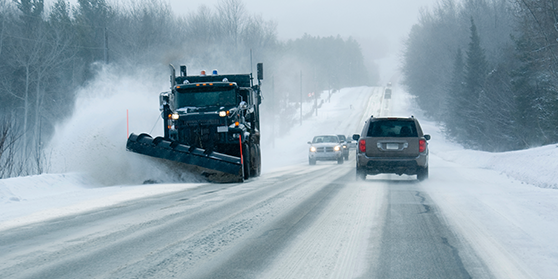Welcome to the EnviroTech Services blog! Check out all the latest industry tips and tricks coming straight to you from
the experts at EnviroTech Services. Our posts will discuss ETS projects, product updates, usage tips, new technologies, industry developments, and company news. Be sure to follow us on Facebook, LinkedIn, Instagram, YouTube, and Twitter!
Here at EnviroTech we always keep our motto, “People Helping People Improve their Environment,” in mind with everything we do. Recently, we had a huge opportunity to help the people of Denver, Colorado help their environment.
Treating or pre-wetting salt stockpiles has many advantages such as ensuring salt flow for stockpile movement and salt application, as well as reducing material loss due to bounce and scatter during application. Salt treatment can also improve melting capacity, melting time and melting. However, if a substandard liquid treatment is used to pre-wet a salt stockpile, leaching can prevent these advantages from being realized.
Ensuring the safety of motorists and passability of roadways in the winter months is critical in many regions of the country. Some of the most useful parts of the toolkit many municipalities use to ensure roadway safety are deicing chemicals such as granular rock salt, salt brine, magnesium chloride, or calcium chloride. These chemicals function by effectively lowering the freezing point of water. Deicers can be used before a storm to prevent snow and ice from bonding as solidly to pavement and improve the effectiveness of plowing. Typically, this is called “anti-icing” and brine's are predominantly used in this capacity.

Commercial snow removal customers often ask why not use sand as the preferred deicer. It comes down to several different factors as to why this may not be the best answer. Below is a mailbag format with many of the most common questions asked about using sand and an alternative that provides many of the benefits without all the negatives.
As we detailed in our November Blog, EnviroTech and Redmond are working with WTI (Western Transportation Institute) to develop a test that measures the influence a deicer has on surface friction. The existing standard test, SHRP 205 doesn’t provide performance-based results that speak to the true goal of deicing – which is to return a driving surface to a safe friction level as quickly as possible for a sustained period, and at maximum efficiency. Again, this new friction test, and its resulting data, was developed as a test method using a friction analyzer, a cold plate, and simulated track to measure the true effectiveness of deicers - replicating as closely as possible real-life conditions.
Snowfighters that operate snowplows can definitely tell if the blade on their plow isn’t operating or working correctly, but the performance and effectiveness of the salt spreader which isn’t readily visible is less easy to tell if it is working correctly. To ensure spreaders are working properly users should perform routine maintenance and calibrate them.
Commercial building managers normally have four items of concern outside of the building itself: people, landscapes, sidewalks and parking areas. Taking these concerns into consideration, we will explore different alternatives available to deal with ice and snow while minimizing effects on plants, grass, concrete and asphalt. A sensible and effective deicing strategy is necessary in order to minimize negative effects and costs of deicing while keeping the various landscaping and transportation facilities safe.
Pre-treating stockpiles of sand or salt with SOS™, an offering from EnviroTech Services Inc. (www.envirotechservices.com), will save you money, time, labor, and equipment maintenance. SOS™ is designed to increase melting efficiency, reduce corrosion, eliminate the need to pre-wet, and keep your salt or sand on the road. Adding SOS™ to your stockpiles will enable you to achieve a higher level of service, safer surfaces and reduced environmental impact.
Friction is very important to people – without it, for example, we could not walk or even crawl, so why did it take so long for the study of the relationship that exist between deicers and snowy/icy roads. Scientists at EnviroTech Services have been studying this relationship and with the help of modern road sensors have developed a test that shows the effect on friction for deicers. A little history on friction and tires, roads and now deicers follows.
 |
Copyright 2025. EnviroTech Services. All Rights Reserved. |